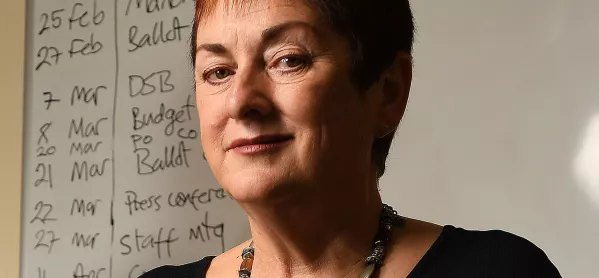The move towards a “powerful knowledge” curriculum is outdated and leaves children without the skills they need, a union leader has warned.
Speaking at the Bryanston Education Summit, Mary Bousted, joint general secretary of the NEU teaching union, said England was “hurtling forward to a rosy past” with its emphasis on knowledge.
She said educators needed to foster skills such as resilience, rather than hope they were “magically caught” – and that students needed to be able to see themselves in the curriculum.
“As an English teacher, I have no problem with Shakespeare, with Pope, with Dryden, with Shelley,” she said. “But I knew in a school where there are 38 first languages taught other than English that I had to have Afro-Caribbean writers in that curriculum, I had to have Indian writers, I had to have Chinese writers to enable pupils to foreshadow their lives in the curriculum.”
She also added that the canon tended to exclude black writers and women writers.
“If a powerful knowledge curriculum means recreating the best that has been thought by dead, white men – then I’m not very interested in it,” she said.
The national curriculum, which must be followed by maintained schools, was reformed in 2014 to provide a “rigorous basis for teaching” and to slim down requirements.
The GCSE reforms which were undertaken alongside this saw a move away from American novels such as Of Mice and Men, towards more British literature.
Pupils must now study at least one play by Shakespeare, a 19th-century novel, a selection of poetry since 1789 and fiction of drama from the British Isles from 1914 onwards.
Ms Bousted told delegates at the summit: “It is important for students to know some of ‘the best that has been thought and said’ but it is also important for them to know that it was a choice that was made and a choice made by the powerful.
"So you can have an uncomplicated reading of Shakespeare which is ‘it’s just about society’. Actually, Shakespeare was an intensely conservative writer who wrote a lot of time to bolster the divine right of kings – so you need different voices in that.”
And she said while other high-performing countries are introducing a more skills-based approach to their education system involving less memorisation of facts, she feared that the rise of the knowledge curriculum in England was creating a system “not fit for the world in 2018”.
Countries such as Singapore have recently introduced changes to ensure schools put a greater emphasis on problem-solving, building character, resilience and communication skills, she highlighted.
She argued that both skills and knowledge should be celebrated.
“You can’t teach skills in a vacuum,” she said. “You need content and knowledge, but neither can you ignore skills and hope in the process of acquiring knowledge they will somehow magically be caught. Skills need to be fostered, nurtured and evaluated.”
“England is an outlier when it comes to curriculum and assessment,” she told delegates. “We are hurtling forward to a rosy past where academic success in subjects is all that matters.”
Tes was a partner of the Bryanston Education Summit.
A Department for Education spokesperson said: "We know how important it is that every young person receives an excellent education and are equipped with the skills they need for the jobs of tomorrow. That is why we have not only reformed GCSEs to make them a gold standard academic qualification, but we are also fundamentally reforming technical education in this country to rival the world’s best performing systems and deliver the skills that are truly valued by employers.
“With new T Levels backed by £500 million a year and extensive reforms to apprenticeships developed hand in hand with business, we are giving young people a genuine choice about their future aged 16 and improving education for every child."




